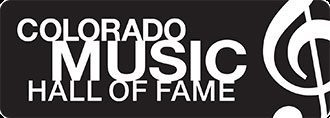Walt Conley
Born on May 20, 1929, Billy Robinson was adopted by Wallace and Ethel Conley, who raised him in Scottsbluff, Nebraska, as Walter Bell Conley. After his adoptive father died in 1944, Walt and his mother moved to Denver, where he graduated from Manual High School in 1949.
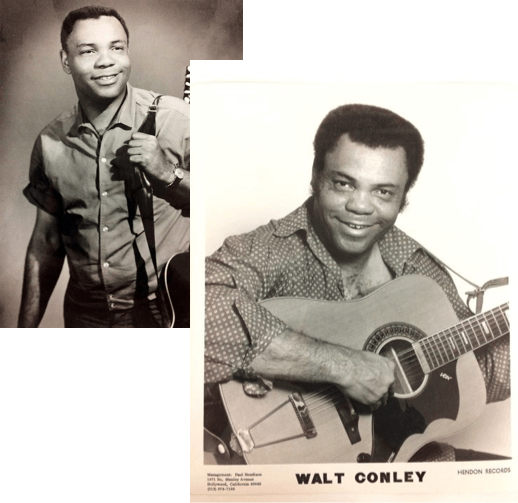
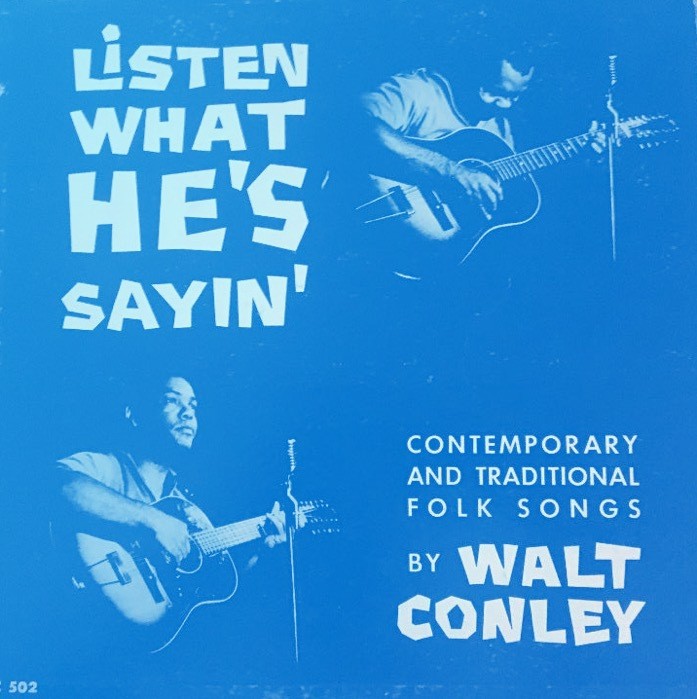
Conley’s first album, Passin’ Through, came out in 1961 on Premiere Records, a small Denver label. Listen What He’s Sayin’ was released in 1963 on Studio City Records, an independent label out of Minneapolis, where he’d been part of the folk scene for several years.
Between 1966 and 1970, Conley played clubs from California to New York and colleges across the Midwest. When the ’60s folk revival ended, he found work in Hollywood, acting in television and movies. He was also a voiceover actor.
Back in Denver, he opened Conley’s Nostalgia on South Broadway in 1983. He believed there was a place for the music of the past. “Everyone in Denver is serving food, but no one else is serving folk music,” he observed.
At Conley’s, he created a group dedicated to traditional Irish music. “If the band U2 from Ireland can sing American blues,” he noted, “then I sure as hell can sing Irish folk songs!”
He closed the venue in 1987 and released After All These Years under the name Walt Conley & Company. In 1995, he held a fundraiser at the Mercury Cafe for the Rocky Mountain Music Association, a nonprofit group that promoted original music.
Mother Folkers
According to Denver rock critic and historian Gil Asakawa, seeing the Mother Folkers, aka the MoFos, was “like watching the musical mix-and-match of the Band’s Last Waltz movie, only live, here in Denver.” With all women! Denver Folklore Center founder Harry Tuft always chuckled when repeating the act’s oft-quoted tag line…
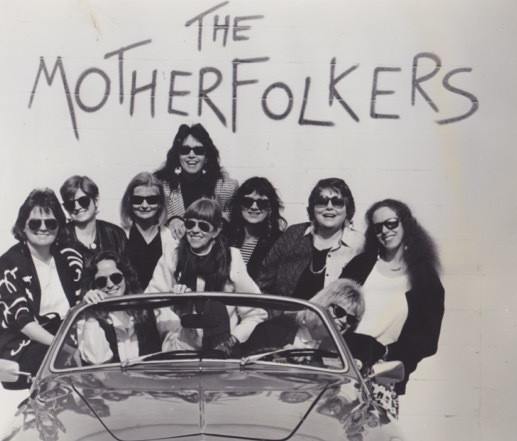
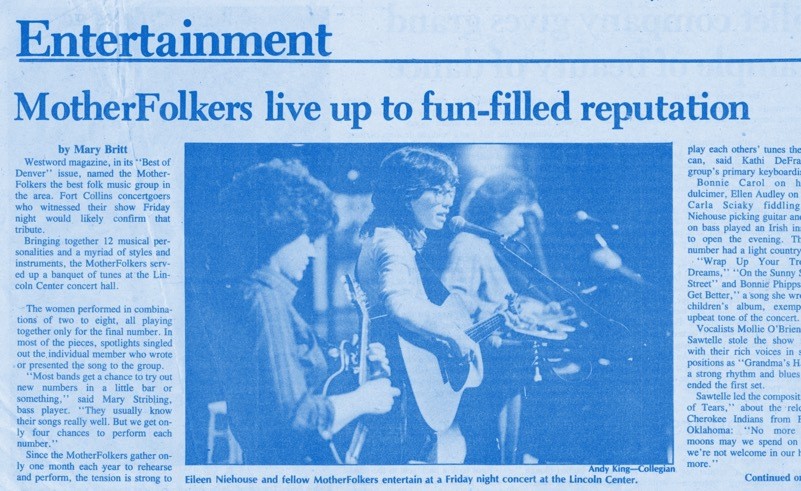
The Mother Folkers were inducted into the Colorado Music Hall of Fame at a concert honoring the fortieth anniversary of Swallow Hill Music, which was also inducted. The lineup performing that night included Ellen Audley, Liz Barnez, Bonnie Carol, Angie DeFrancis, Mary Flower, Julie Hoest, Ellen Klaver, Rebecca Leonard, Barb (Morris) Davidson, Suzy Nelson, Eileen Niehouse, Mollie O’Brien, Bonnie Phipps, Pamela Robinson, Carla Sciaky, Deb Schmit-Lobis, Sumi Seacat, Mary Stribling, Vicki Taylor and Nondi (Leonard) Wernick. Bette (White) Rutherford joined the group to accept the award, then enjoyed the concert from the audience.
There is nothing quite like a Mother Folkers concert, which showcases some of the most accomplished and talented women in Colorado folk music today; we are lucky that these musicians call this state home. The Colorado Music Hall of Fame was proud to induct the Mother Folkers as part of the Hall of Fame class of 2019.
Swallow Hill Music
Swallow Hill Music has a long, impressive history as Denver’s home of roots music: folk, bluegrass, old-time, acoustic, Americana and beyond. The concept grew from an idea that hosting roots-music concerts and teaching people how to play that music could be combined into a nonprofit association.
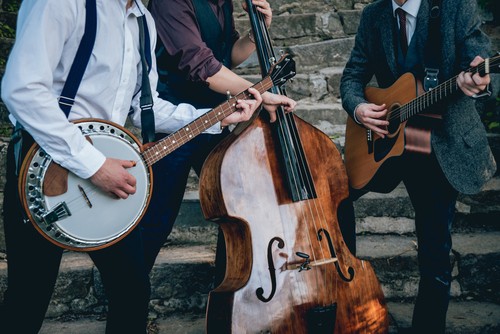
Swallow Hill Music has garnered accolades from the El Pomar Foundation, arts awards from the Mayor’s and Governor’s Offices, and numerous Best of Denver honors from Westword newspaper. Musicians and music fans around the country continue to heap praise on the organization.
Founding Mother Folkers member Mary Flower describes Swallow Hill as “an enormous network of friends who have grown together since they worked behind the counter in their early twenties at the old Denver Folklore Center.”
Adds Paul Kashmann, guitar player, former Swallow Hill board member and current Denver City Council representative: “There’s really nothing like Swallow Hill, in that you can literally reach out and touch the performers if you don’t pass them in the hall before the show.”
Folk singer Tish Hinojosa sees Swallow Hill’s growth as “an encouraging sign of the power of acoustic music,” noting that “the intellectual-circle places, like the Northeast, have ongoing music venues that have always presented acoustic and folk music. But in the heart of the country, it’s a little rarer. It’s great that Denver has one.”

Paul Lhevine, current CEO, is excited about Swallow Hill’s potential: “The future looks even more promising. We continue to attract new audiences while paying homage to our historical roots; we’ve found ways to stay relevant in a quickly changing music scene. Our additional locations are proof-positive that folks want music in their neighborhoods, and our Community Outreach programs ensure that everyone…has an opportunity to learn and grow through music.”
From the early dreams of musicians at the Denver Folklore Center to the award-winning arts organization it has become, Swallow Hill has been a vibrant music resource—not only in Colorado, but across the nation. The Colorado Music Hall of Fame was proud to induct Swallow Hill Music in 2019, and honored to celebrate all of the performers, teachers, volunteers, members and supporters who make it an essential part of this state’s music history.
Dick Weissman
Richard (Dick) Weissman is an award-winning musician, a songwriter, a historian, an author and an educator. He’s also been a mentor for hundreds, if not thousands, of former students and colleagues.
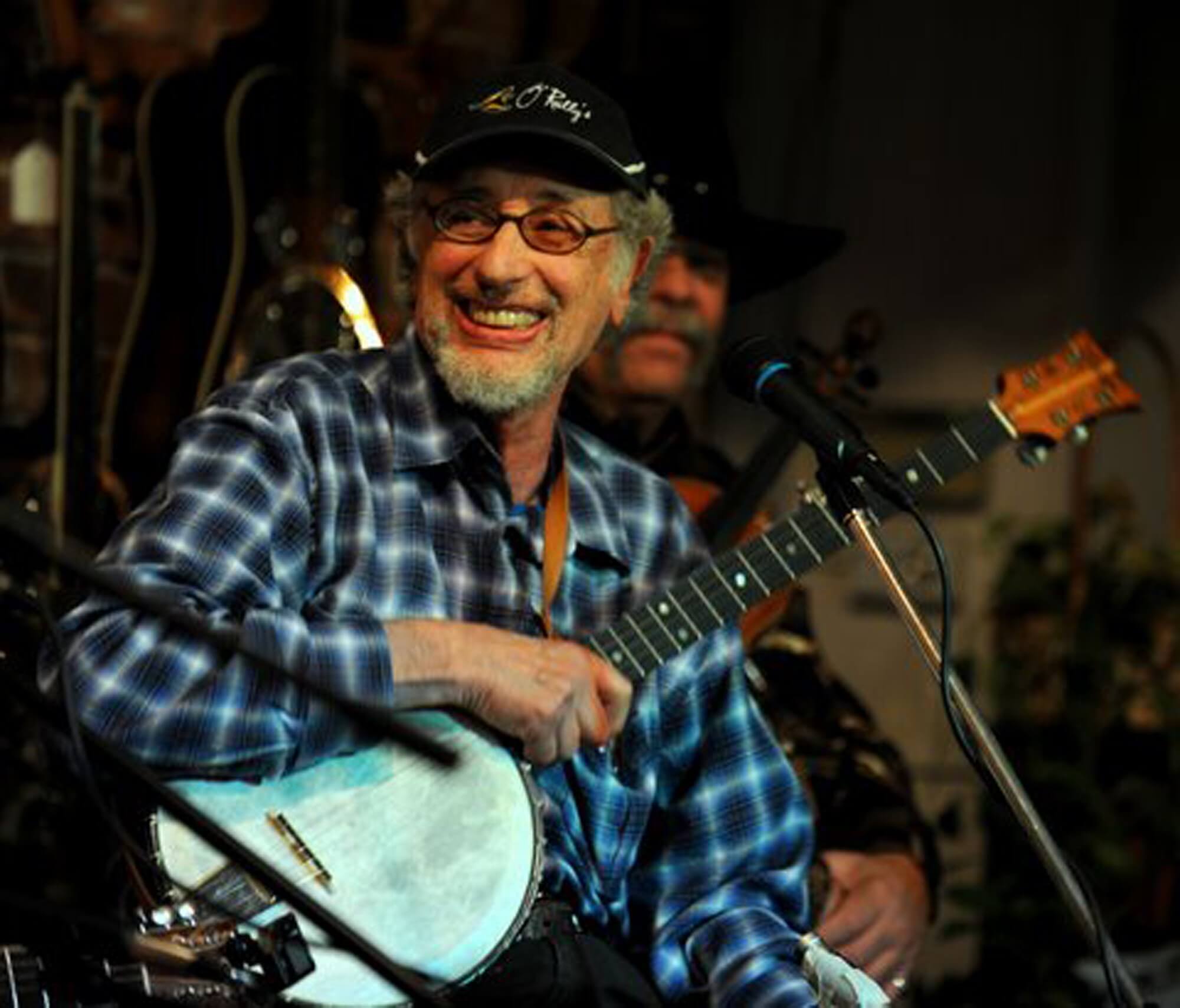
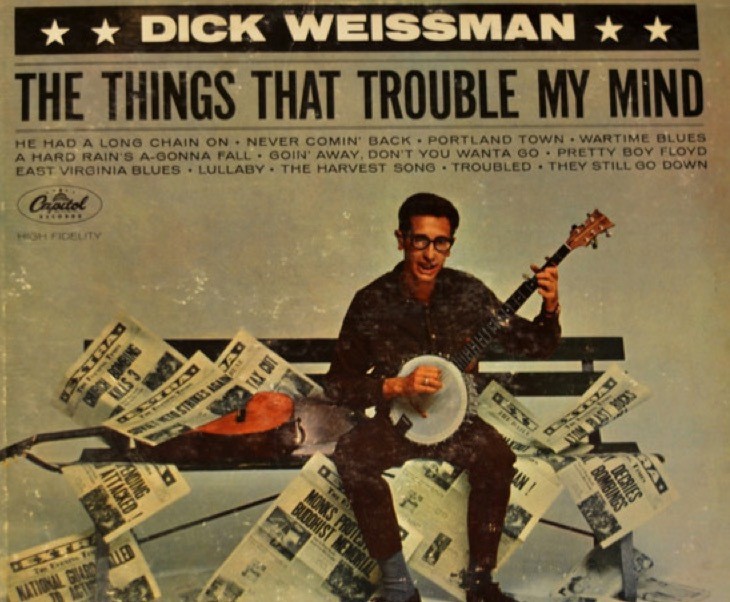
In 1964, Weissman recorded The Things That Trouble My Mind, which met with considerable success, as did Weissman songs recorded by Gram Parsons and Judy Collins.
After twelve years in New York, Weissman moved to Denver, where he enrolled in the fledgling music business program at the University of Colorado and rekindled his passion for the banjo. The Denver Folklore Center was the hub of the folk and bluegrass community, which at the time included Kim King, Chris Daniels, Nick Forster and Tim O’Brien, among others.
From 1975 to the early ’80s, Weissman played in bands, raised a family, taught at Colorado Women’s College and composed music for films and commercials. In 1979 he recorded an album titled Modern Banjo – Mountain Style. He also wrote a biography about Wesley Westbrook, a black songwriter from Arkansas who wrote several songs for the Staple Singers.
Weissman’s writing career produced over 22 titles, among them instruction books for guitar and banjo. His Folk Music Sourcebook won an ASCAP Music Critics Award. During this time, he also taught at Swallow Hill, performed when he could and began teaching at UCD. He recorded seven more albums between 1990 and 2019.
Do you love and appreciate the history of music? Head over to the Colorado Music Hall of Fame, where you get to learn and enjoy the rich history of music in Colorado.
